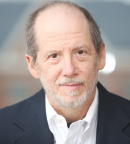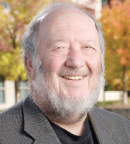Two scientists, whose discoveries in stem cell and cancer cell biology have led to innovative advances in fields ranging from oncology and immunology to cancer genomics and regenerative medicine, will receive the 2019 Albany Medical Center Prize in Medicine and Biomedical Research. Bert Vogelstein, MD, is the Clayton Professor of Oncology and Pathology, Sidney Kimmel Cancer Center at Johns Hopkins University; Director, Lustgarten Laboratory for Pancreatic Cancer Research at Johns Hopkins University; and Investigator, Howard Hughes Medical Institute. Irving L. Weissman, MD, is Director, Stanford Institute for Stem Cell Biology and Regenerative Medicine; Director, Stanford Ludwig Center for Cancer Stem Cell Research and Medicine; Virginia and D.K. Ludwig Professor for Clinical Investigation in Cancer Research, Stanford University; and Professor of Pathology, Developmental Biology, and by courtesy, Biological Sciences and Neurosurgery, Stanford University.

Bert Vogelstein, MD

Irving L. Weissman, MD
The $500,000 award has been given annually since 2001 to those who have altered the course of medical research. It is one of the largest prizes in medicine and science in the United States.
Changing the Paradigm of Cancer Research
Through their conceptual innovation and groundbreaking work, Drs. Vogelstein and Weissman have altered the modern understanding of cancer biology and, of cancer, genomics and how it relates to cancer initiation and progression. Their insights and discoveries have paved the way for earlier diagnoses and more effective treatments.
Through his studies of colon cancer, Dr. Vogelstein established that cancer progression is a multistep process that is caused by sequential mutations of specific cancer genes characteristic of the different stages that occur over many years (from precancerous to early and then advanced cancer). Inspired by these findings, Dr. Weissman, who pioneered stem cell research and had already isolated blood-forming stem cells, proposed and then demonstrated that such sequential accumulation of mutations during the formation of blood cancers occurs in the rare, long-lived stem cells of the tissue, leading to the emergence of cancer.
Translating Genetic Knowledge Into Diagnostics and Therapeutics
In 1988, Dr. Vogelstein was the first to elucidate the molecular basis of a common human cancer. His study of colorectal cancers led him to the discovery, in 1988, that cancer is caused by sequential mutations of oncogenes and tumor suppressor genes that occur over many years.
In 1989, Dr. Vogelstein discovered that the TP53 gene plays a major role in human cancers. TP53 was originally thought to be an oncogene, but by using genetic evidence from patients with cancer, Dr. Vogelstein showed that it was, in fact, a tumor-suppressor gene. His team subsequently discovered the biochemical mechanisms through which TP53 stops tumors from growing. TP53 is now known to be the most frequently mutated tumor-suppressor gene across all human cancer types. Dr. Vogelstein’s team also discovered that a gene called PIK3CA is mutated in human cancers, and PIK3CA is now known to be the most frequently mutated oncogene across all human cancer types.
OF NOTE
The 2019 Albany Medical Center Prize in Medicine will be awarded to Dr. Vogelstein and Dr. Weissman on September 25, 2019 in Albany, NY.Dr. Vogelstein and his colleagues have discovered many other of the most important genes driving cancers of several types. His team was also the first to report the sequence of all the genes in any cancer type and precisely determined the nature and number of all genes that were altered in typical tumors of the breast, colon, pancreas, and brain.
Perhaps based on his experience in pediatrics and prevention, Dr. Vogelstein has long been an advocate for earlier diagnosis to reduce cancer deaths. Working with long-time colleague Kenneth W. Kinzler, PhD, he developed new technologies that can be used to identify genetic alterations in bodily fluids, such as blood (“liquid biopsies”). His group’s discovery of the genes that are altered in cancers, coupled with these technologies, has led to a new generation of tests for earlier detection and improved diagnosis of cancer.
Pioneering Stem Cell and Cancer Cell Biology Research
In 1988, Dr. Weissman was the first to isolate and characterize a tissue stem cell, the blood-forming hematopoietic stem cell, in mice and, later, in 1992, in humans, thereby establishing the fields of tissue stem cell research and regenerative medicine. He also pioneered the biologic definition, prospective isolation, and transplantation of stem cells, and his methodology is considered the gold standard in this field of research.
Following the isolation of blood-forming stem cells, his group successfully defined the stages of development that occur between those stem cells and mature blood cells. Then his group went on to isolate stem cells of other tissues including brain stem cells, muscle stem cells and skeletal stem cells, cartilage and bone marrow cells.
Dr. Weissman also focused on the protein CD47, found on the surface of many cells in the body and nearly every type of cancer cell. When expressed by a cancer cell, it prevents macrophages from attacking the cancer cell, overriding “eat me” signals that cancer cells expressed during their development. Inspired by Dr. Vogelstein’s discovery of stepwise mutations leading to colon cancer, Dr. Weissman showed that these signals arise in a clone of hematopoietic stem cells on their way to becoming leukemia cells as a result of stepwise mutations in the hematopoietic stem cell clone. Dr. Weissman also showed that on the way to becoming leukemia, the expanding mutated hematopoietic stem cell clone can cause blood diseases such as myelodysplastic syndrome.
Beginning with leukemia, Dr. Weissman led the clinical development of a CD47 antibody that blocks this signal. Combined with rituximab, the CD47 antibody enables macrophages to devour cancer cells without harming healthy, normal cells.
His research has since produced anticancer therapies that target cancer stem cells and has led to new treatments for breast cancer, leukemia, non-Hodgkin lymphoma, bladder cancer, head/neck cancer, malignant melanoma, sickle cell anemia, severe combined, and myelodysplastic syndrome. ■

